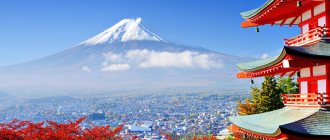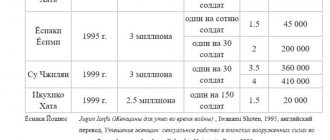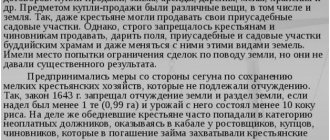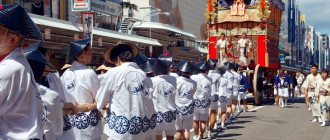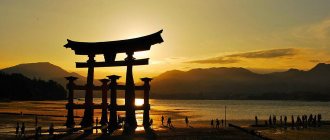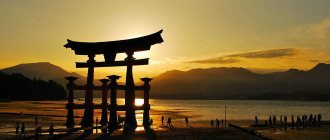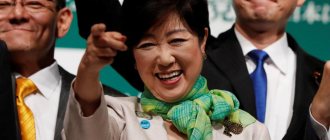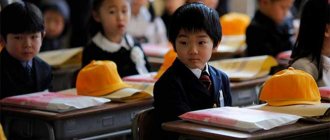A number of ministers from Shinzo Abe’s cabinet retained their portfolios in the new government: Foreign Minister Toshimitsu Motegi, Finance Minister Taro Aso, Minister of Public Lands, Infrastructure, Transport and Tourism Kazuyoshi Akaba, as well as Olympic and Paralympic Affairs Minister Seiko Hashimoto and Minister of Reconstruction economy of the country Yasutoshi Nishimura. Japanese Minister of Economy, Trade and Industry Hiroshi Kajiyama, who in the government is responsible for developing economic ties with Russia, was also reassigned; and Environment Minister Shinjiro Koizumi.
At the same time, Defense Minister Taro Kono left his post, receiving the portfolio of Minister of State responsible for carrying out administrative reform. His place was taken by Nobuo Kishi, the younger brother of Shinzo Abe, who was previously Deputy Minister of Foreign Affairs. Also in the Suga government, a new position of state minister for digitalization has appeared. It was taken over by Takuya Hirai, who under Abe was also responsible for the development of science and technology.
The new chairman of the ruling Liberal Democratic Party (LDP), Yoshihide Suga, was confirmed as the country's new prime minister on Wednesday. The majority of deputies of both houses of the national parliament voted for his candidacy. According to the party charter, he will hold this post until the end of September 2021, when Abe's resignation expires. After this, new elections of the chairman will be held - for a standard three-year term.
Of the 20 ministers in the government, only two are women - Seiko Hashimoto and Justice Minister Yoko Kamikawa. The oldest was 79-year-old Finance Minister Taro Aso, the youngest was 39-year-old Environment Minister Shinjiro Koizumi, who is the son of former Prime Minister Junichiro Koizumi. The average age of government members, including its head, is 60 years.
Foreign Secretary
“Toshimitsu Motegi has been reappointed as Foreign Minister,” Kato said. Motegi took charge of the foreign affairs agency last year.
Previously, in the Abe government, he was Minister of Economy, Trade and Industry (from December 2012 to September 2014) and Minister of Economic Recovery (from August 2021 to September 2019). In his last post, he conducted consultations with the United States on trade from the Japanese side and held a number of meetings with the American trade negotiator Robert Lighthizer. The result of these negotiations was a comprehensive trade agreement between Japan and the United States, which came into force in January of this year.
As head of the Foreign Ministry, Motegi held a number of bilateral meetings with foreign colleagues, including Russian Foreign Minister Sergei Lavrov. Both ministers are in charge of a new mechanism for resolving the peace treaty problem, the creation of which was agreed upon by former Japanese Prime Minister Shinzo Abe and Russian President Vladimir Putin in December 2021 on the sidelines of the Group of Twenty (G20) summit in Buenos Aires.
Motegi is now 64 years old. He is a native of Tochigi Prefecture. He graduated from the University of Tokyo and also received a master's degree from Harvard University in public administration. The minister is the author of several books on Japanese foreign policy and economics.
During a press conference on the morning of June 24, Chief Cabinet Secretary Katsunobu Kato said that he had expressed through diplomatic channels Russia's protest regarding large-scale military exercises in Iturup and Kunashir, which began on June 23.
“The build-up of military power in the South Kuril Islands, including these military maneuvers, is completely unacceptable. This goes against our position,” Kato said.
The Russian army has already conducted exercises in the Kuril Islands in February of this year. It intensified its activities in the “northern territories”.
“I cannot comment on the goals of the Russian military exercises, but it is important to resolve the territorial problem itself,” Kato emphasized.
He once again explained the government’s course aimed at resolving the “territorial problem” and active negotiations on a peace treaty.
Sankei Shimbun 02/22/2021 Yahoo News Japan 12/26/2020 Kyodo News 04/24/2021
Comments from Japanese readers
Num
After the war, Japan was deprived of its backbone, and now we are being bullied. It is necessary to adjust the ninth article of the Constitution and strengthen the power of deterrence. There are plenty of problems: territorial disputes with anti-Japanese countries and the rights of troops based in Japan. The situation is changing at incredible speed. Post-war legislation no longer corresponds to it. We also need to put an end to history and textbooks that distorted the leftist forces!
My
A ban on the alienation of territories was introduced into the Russian Constitution, so there is no hope for the return of the Southern Kuril Islands... In this regard, it is necessary to build an American military base in Hokkaido, which will threaten Russia. Russia must be intimidated, otherwise it will not return the territory: “Don’t you want an American military base? Then return the islands. If you don’t do this, we will create a system together with the United States to fight Russia.”
Japan should be a democratic country. If she shows uncertainty to the US, she will lose their trust. However, the price for peace is too high. The fact is that we were discriminated against. In the current economic crisis, not a single expert will say that the lost 30 years were spent on the United States. Besides, the West would not want Japan's advanced technology to fall into the hands of the East...
Kas
“The build-up of military power in the Southern Kuril Islands, including these military maneuvers...”
There was no such news after the collapse of the USSR, but recently it has appeared (including visits by the Russian president). Russia will probably only become more dangerous? Japan is surrounded by terrible countries - China, Russia, North Korea and South Korea. If China takes over Taiwan, Japan will have no allies left. Japan must contribute to its independence. This will show her intentions to her neighbors.
***
In our country there is a great friend of Russia who called Putin by name or “you”, and also met with him 27 times. Let him call the head of Russia and ask him to stop the exercises, and also to return the islands as soon as possible. Kato will also stop expressing regrets. Influence Abe to resolve this issue. Strange - why don't they do this?
Urv
Russia started making a fool of Japan after Abe came to power. He met with Putin in his homeland of Yamaguchi, and it seemed that the territorial problem had already been resolved. Abe promised that he would resolve this issue with Putin under the banner of signing a peace treaty. However, we see what is really happening. Abe and Suga spent so much tax money on friendly diplomacy, which in reality was spineless. Their incompleteness causes irritation. “It goes against our position” is akin to a white flag.
Reiva MC
Russia, China and South Korea have occupied our territories, and the DPRK is kidnapping the Japanese. Japan can't do anything and just cries. Everyone understands the essence of the Japanese government, so they do what they want. The Japanese authorities are pathetic.
Ptn
Japan provides economic assistance to Russia, but the territorial problem is not being resolved. Japan has been used and is now being put under military pressure. Most likely, the reason is not this, but that the United States began to interfere in the affairs of the South China Sea, Hong Kong and Taiwan. One way or another, it is obvious that economic aid and other tried and tested methods will not return the islands.
La1
“The build-up of military power in the South Kuril Islands, including these military maneuvers, is completely unacceptable. This goes against our position."
All Japanese think so. But what are you going to do about it? I would like to hear specific proposals. If you are not capable of anything, then say so directly. Giving hope is betrayal.
Ytt
It is a pity that the territorial problem cannot be resolved, but this weak-willed government will not do anything. Now it is much more important to protect the Senkakus and get rid of weak diplomacy.
Wfw
Russia has started to bully foreign countries to be like China because it is inferior to it. Moscow emphasizes: the Southern Kuril Islands are ours, and we will not return them. She wants to show what a terrible country it is, but now the Japanese government is completely weak-willed.
Jyk
Anyone can protest! It is necessary to end the policy of financial restrictions and correct the military balance. If financial restrictions lead to a decline in state power, war will definitely break out. But the Liberal Democratic Party of Japan has only one goal: the Olympics.
Qco
This is the result of the Suga administration’s efforts for its master, the United States. Suga can only criticize others and that is not normal. Soon, the Chinese army will also regularly conduct military exercises near Japan!
InoSMI materials contain assessments exclusively of foreign media and do not reflect the position of the InoSMI editorial staff.
Minister of Defense
“Nobuo Kishi has been appointed Minister of Defense,” Kato said. Kishi was replaced in this post by Taro Kono, who is now appointed Minister of State responsible for carrying out civil service reforms.
Kisi, 61, began his political career in 2004, becoming a member of the upper house of parliament, and in 2012 he was elected to the lower house. Under Abe, he served twice as deputy foreign minister and was involved in negotiations related to the redeployment of U.S. troops to Marine Corps Air Station Iwakuni, located in Yamaguchi Prefecture in southwestern Japan.
As noted by NHK, Suga decided to appoint Kishi as defense minister after praising his political abilities in a wide range of areas, including international relations and security. In 2012, after being elected to the lower house, in a Mainichi newspaper poll, he spoke out in favor of restarting nuclear power plants shut down after the Fukushima-1 accident, Japan's right to collective self-defense, and also in support of Tokyo's firm stance against Chinese expansion. The politician's hobbies include tennis and skiing.
Minister of Economy
“Hiroshi Kajiyama has been appointed Minister of Economy, Trade and Industry, Minister for the Development of Economic Relations with Russia,” Kato said. Kajiyama took over the position last October when previous Economy Minister Isshu Sugawara was forced to resign over a vote-buying scandal.
The position of Minister for the Development of Economic Relations with the Russian Federation was specially created and assigned to the head of the Japanese economic department in 2021; for almost three years it was held by Hiroshige Seko.
Shinzo Abe announced on August 28 that he wanted to resign due to deteriorating health. His ulcerative colitis worsened, due to which he also had to leave the post of prime minister in 2007. Shortly before the announcement of his resignation, Abe took first place in the length of continuous tenure as head of government in the entire history of Japan. In total, at the time of setting the record on August 24, he had been in office for 2,799 days since the start of his second prime ministerial term in December 2012.
Japan: government (order of formation, powers)
The Cabinet of Ministers - the government of Japan - is the highest executive body.
The first cabinet of ministers, created on a European model, began its work in December 1885, and since that time there have been no interruptions in the work of the government. After World War II, the status of the Cabinet of Ministers was greatly changed.
Main legal acts on the Cabinet of Ministers:
1) Constitution of 1947
2) Law on the Cabinet of Ministers of January 16, 1947
3) Law on the structure of state executive bodies of 1948
The Basic Law on Ministerial Reform was passed in 1998 (2 goals of administrative reform: reducing the number of ministries and departments from 22 to 12 and strengthening the leadership role of the Prime Minister)
17 government bills - 1999 (developed this reform)
The most important constitutional provision that determines the place of the Japanese government in the system of government is the rule that the Prime Minister is elected by the Diet, and the government is collectively responsible to the Diet. The Japanese Constitution provides that the Prime Minister is elected from among the members of Parliament, and the results of the vote are approved by parliamentary resolution. Traditionally, the head of the Cabinet of Ministers is the leader of the parliamentary majority party. State ministers are appointed by the Prime Minister. Currently, the composition of the Cabinet of Ministers should not exceed 14 state ministers, but by decision of the head of government it is allowed to have up to three special ministers. All members of the Cabinet are ministers of state, including the secretary general and ministers without portfolio.
While in office, a minister cannot be brought to justice without the consent of the prime minister (Article 75 of the Constitution). The Prime Minister may, at his discretion, remove ministers from office (Article 68 of the Constitution). As already mentioned, the Cabinet of Ministers is collectively responsible to Parliament and must resign if the House of Representatives passes a vote of no confidence or refuses to vote confidence in the government and is not dissolved within 10 days (Article 69 of the Constitution). The Cabinet must also resign if the office of Prime Minister becomes vacant or if the first session of Parliament is convened after elections to the House of Representatives (Article 70 of the Constitution).
The Government of Japan (Cabinet of Ministers) is the highest executive body. The status of the Cabinet, the process of its formation, as well as its activities are regulated by the Constitution of Japan, as well as the Law “On the Cabinet of Ministers” of January 16, 1947.
Functions of the Cabinet of Ministers (Article 73 of the Constitution):
· conscientious implementation of laws, conduct of state. affairs;
· management of foreign policy;
· conclusion of agreements (with the approval of Parliament);
· organization and leadership of citizens. service in accordance with the law;
· development of a draft budget and its submission to parliament;
· issuing government decrees to implement the provisions of the Japanese Constitution and laws (cannot contain articles providing for criminal punishment except with the permission of the relevant law);
· adoption of a law on general and private amnesties, mitigation and deferment of sentences and restoration of rights;
· Giving advice to the Emperor regarding all state. actions and responsibility for them;
· appointment of judges of the Supreme Court (except for the Chief Justice);
· appointment of all lower-level judges;
· submission of a candidacy for chief judge for appointment;
· making decisions on convening an emergency session of Parliament, as well as an emergency session of the House of Councilors;
· responsibility for spending the reserve fund to cover the budget deficit;
· annual submission to Parliament of reports on state income and expenses, reports on the state of the state. finance, etc.
Status of Cabinet members (Japan's Constitution defines the Cabinet as "civilian")
1)members of the Cabinet should not be in military service, be former professors. military or bearers of militaristic ideology
2)all members of the Cabinet are ministers;
3)while in office, the minister has immunity from legal liability (can only be held with the consent of the Prime Minister);
4)any member of the Cabinet can be removed from office by the Prime Minister.
Prime Minister:
· heads the Cabinet of Ministers;
· elected from among the members of Parliament;
· elected by Parliament;
· traditionally, the leader of the parliamentary majority party becomes the Prime Minister;
· appoints ministers of state;
The Cabinet operates:
· secretariat;
· the office (under which many committees and government agencies function);
· legislative bureau;
· Personnel Affairs Council;
· National Defense Council.
· Each state minister has two deputies: parliamentary and administrative (Article 17 of the Law on the structure of state executive bodies). The Ministers of Finance, Agriculture, Forestry and Fisheries, Economy and Industry and Defense each have two parliamentary deputies.
· Japanese ministers are not specialists, so the real head of the ministry is the administrative deputy - a professional official with special education. In Japan, the practice of ministerial rotation is often used (for example, Taro Aso successively served in the government as Minister of Foreign Affairs and Minister of Internal Affairs and Communications, as well as Minister of State without Portfolio for Economic Affairs and Fiscal Policy and Director of the Economic Planning Agency). Also indicative is the track record of government posts of former Prime Minister R. Hashimoto: Minister of Health and Welfare, Transport, Finance, Foreign Trade and Industry.
